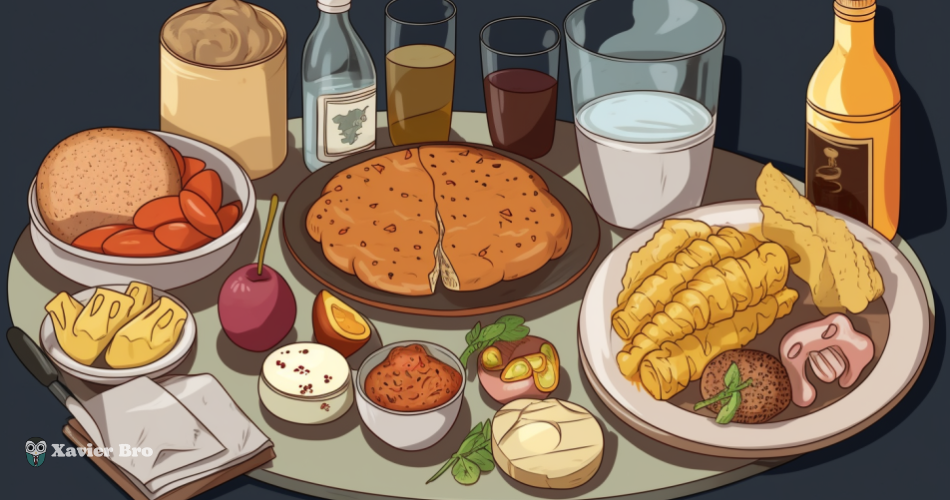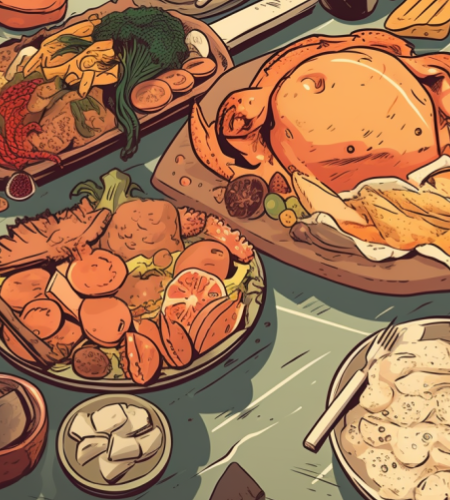Furosemide is a type of medicine known as a loop diuretic. It is a sulfa drug and works by inhibiting the transport of sodium, potassium, and chloride in the loop of Henle, leading to increased excretion of these substances through urine. People often take this medicine, but you must be careful about what foods to avoid when taking Furosemide. It’s because certain foods that can mix with this medicine cause severe side effects, even leading to emergencies.
Furosemide is sold under trade names like Lasix and Discoid for problems like high blood pressure, swelling in the brain and lungs, liver cirrhosis, heart failure, and swelling in general. Hence, let’s explore everything about Furosemide!
When is Furosemide Prescribed?
Furosemide is used for the following diseases:
Oedema
It is used when there is an accumulation of excessive fluid in the body cavities. Oedema happens as a result of liver failure, heart failure, kidney failure, etc.
Hypertension
Furosemide is used for treating chronic hypertension when single medications do not control blood pressure.
Pulmonary Edema
When there are heart problems like left heart failure, fluid retention occurs in the lungs. Furosemide is used for reducing fluid retention.
CHF
It is indicated for use in congestive heart failure to reduce cardiac overload.
Renal Failure
It is indicated in acute renal failure or other kidney disorders like nephrotic syndrome to reduce fluid and waste metabolites.
Ascites
It is used in ascites caused by liver failure or cirrhosis to reduce fluid volume in the abdominal cavity.
Precautions Before Using Furosemide
It’s crucial to be cautious and take safety measures before using Furosemides. Consider the following important points to stay safe and reduce any possible risks:
- Avoid excessive salty and processed foods to prevent salt retention.
- Tell your detailed medical history before prescription to your healthcare providers, like DM, Hepatic problems, and drug allergies, especially with sulpha drugs.
- Be Careful while using it during pregnancy and lactation as it affects the fetus and passes to the mother’s milk too.
- Beware if you have dehydration issues, as it enhances the risk of further water loss.
- Beware if you use anticoagulants, lithium, cardiac medicines, antibiotics, or anti-inflammatory drugs, as it enhances adverse drug interactions with certain medications.
- Electrolyte follow-up is important while using this drug because it imbalances the electrolytes, so if you have an electrolyte problem consult your medical practitioner.
- If you have an issue of hypotension, then be careful because it causes a drop in blood pressure, so a regular blood pressure checkup is necessary.
Foods to Avoid When Taking Furosemide
It’s really important to know certain types of food that can decrease the effectiveness of this drug. Pay close attention to these significant details:
1- High-sodium foods
These include processed foods, junk foods, snacks, etc. Taking these foods with this drug will deteriorate the drug’s actions and reverse its good effects by increasing fluid and salt retention in the body.
2- Canned foods
These foods include ready-made or ready-to-cook foods such as instant noodles. These foods are rich in sodium, and this drug has no beneficial effect if you take them. So if you are taking this drug, avoid taking canned foods at all.
3- High-fat foods
Avoid high-fat foods such as deep-fried dishes, meat with excessive fatty layers, unhealthy snacks, and dairy products like cream. These particular foods should be avoided if you are taking this medicine, as their fatty content can hinder the absorption and metabolism of the medication, thus impacting its effectiveness.

4- Smoky meats
Smoky meats include sausages, hams, etc. They are so high in salt that you can’t imagine it. So it will wash away all the benefits of this drug with it.
5- Frozen products and preserved foods
Frozen foods and products include frozen sandwiches, burgers, and preservative-added foods like ketchup sauces, etc. These products are rich in salt to increase their shelf life and, on the other hand, have bad effects on health. Their salt content increases as time passes. So they cause fluid and water retention and antagonize the effects of the drug.
6- Cheese and cheese products
These are rich sources of salt. So you should never take these if you take Furosemides as it counteracts its benefits.
7- Alcohol
It is consumed in many countries, but one should be aware of what foods should you avoid when taking Furosemide and alcohol. Because it increases diuresis and causes dehydration, alcohol also causes marked diuresis. If we take both at a time, it will adversely affect the water balance in our bodies.
8- Caffeine products
Caffeine products are common and include a variety of coffees, cold drinks, beverages, energy drinks, etc. If you are on Furosemides, you must say goodbye to these foods; otherwise, prepare to face severe dehydration’s consequences. Caffeine causes diuresis, the same as loop diuretics. So the additive effect is harmful.
9- High oxalate foods
Consuming foods that contain a high amount of oxalate, such as green leafy vegetables, tomatoes, spinach, and some nuts, should be done cautiously. This drug induces a greater excretion of calcium through the kidneys when taken. As a result, it raises the risk of kidney stone development. So limit these foods or avoid them at all.
10- High-sugar foods
The foods with high sugar, such as candies, sweets, etc. They benefit you nothing; instead, harm you. Since they require a lot of water content in the body and deteriorate the condition, these may lead to marked fluid retention. They antagonize the effects of drugs.
11- Ketogenic diets
These include high protein-only diets especially ketogenic diets for weight loss. If you take it with Furosemide, it causes marked dehydration. It puts a lot of strain and pressure on the kidneys, which is harmful to the kidneys. It causes proteins to precipitate and form kidney stones as well. So avoid ketogenic diets.
12- Liquorice
Liquorice causes potassium loss in the body. If we take it along with this drug, it causes additive, synergistic effects and causes marked potassium loss from the body. It will create potassium deficiency and electrolyte imbalance in the body as well.
13- Grapefruit products
Grapefruit and its juices are metabolized in the liver, and loop diuretics are also metabolized there. If we take both of these things simultaneously, It causes marked drug interaction with certain metabolites of the grapefruit via metabolizing enzymes.
The levels of this drug increased in the body so much by this interaction that it may be fatal. So always avoid taking such fruits and juice along with this.
14- Herbal supplements
Herbal supplements are used worldwide. Some of these are dandelions, horsetails, etc. These causes marked diuresis. If we take it along with the Furosemides, it enhances the diuresis and causes dehydration.
15- Soy Sauce and products
It contains excessive salt in it that causes marked salt and fluid retention in the body. If you want to take this medicine, leave the soy sauce and its products as well to obtain the benefits of the drug.
Foods to Take When Taking Furosemide
Besides knowing what foods to avoid, it is essential to learn what can you eat while taking Furosemide. Below are the ones:
Potassium-rich foods
It’s important to eat foods with lots of potassium to make sure your body has enough. Some examples of these foods are bananas, avocados, oranges, beans, sweet potatoes, mangoes, papaya, kiwi, raisins, pumpkin, apricots, and pomegranate.
If you’re taking Furosemide, which can cause you to lose potassium, it’s really important to eat these foods. By adding these potassium-rich foods to your meals, you can keep your potassium levels balanced and stay healthy.
Magnesium-rich foods
Magnesium is also lost along with the potassium from the body, so we must balance out this mineral as well. You should take almonds, pumpkin seeds, peanuts, black beans, dark chocolate, cashews, spinach, etc.
Water
This drug causes diuresis and causes dehydration. So you must drink a lot of water daily with this. It will balance your water reserves in the body. It will protect you from kidney stains and any kind of stones. So drink plenty of water.
Common Side Effects of Furosemide
Let’s dive into some side effects of taking Furosemides:
Increased urination and dehydration
As you know, it causes the excretion of water via the kidneys hence causing marked urination, which can lead to dehydration. It is a potential side effect that can also prove fatal if not addressed in time.
Electrolyte imbalances
When there is diuresis, it is always followed by natriuresis, which is the loss of salts from the body like potassium and magnesium. So due to the loss of these electrolytes, other electrolytes can also be disturbed and lead to fatal consequences. The person may feel weak and lethargic due to this loss.
Dizziness
It is observed due to excessive loss of fluids and salts from the body and mainly due to low blood pressure.
Other Furosemide side effects include skin problems, GIT disturbances, and ototoxicity.
FAQs
Yes, you can take milk but at an optimum limit. But if you take milk in excess of drugs, it can impair the digestion of the drug via milk enzymes.
Yes, taking bananas while taking Furosemide is encouraged as it reduces your weakness caused by the loss of potassium from the body.
No, Furosemide does not cause high Blood pressure. It causes low blood pressure. So if you have high blood pressure, you can take this medicine.
Yes, it can damage the kidneys if you don’t take plenty of water with it. It also damages kidneys if you don’t avoid certain foods that damage kidneys while using Furosemide by forming kidney stones. So drink plenty of water and protect your kidneys.
Bottom Line
It is proven that there are more benefits of Furosemide in certain medical conditions than its adverse effects. If you take Furosemide with precautions and the above-mentioned guidelines, you will surely get benefit from it. It is an excellent drug to consume with few side effects; you can get rid with awareness of what foods to avoid when taking Furosemide.
I hope so you enjoy our article, do check out more of our amazing articles.
